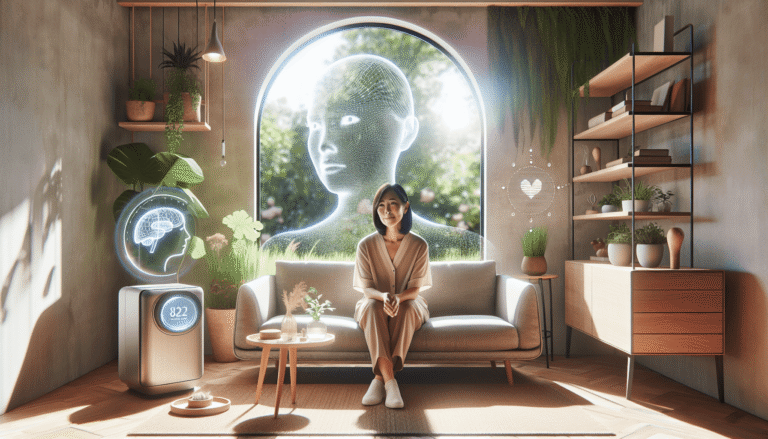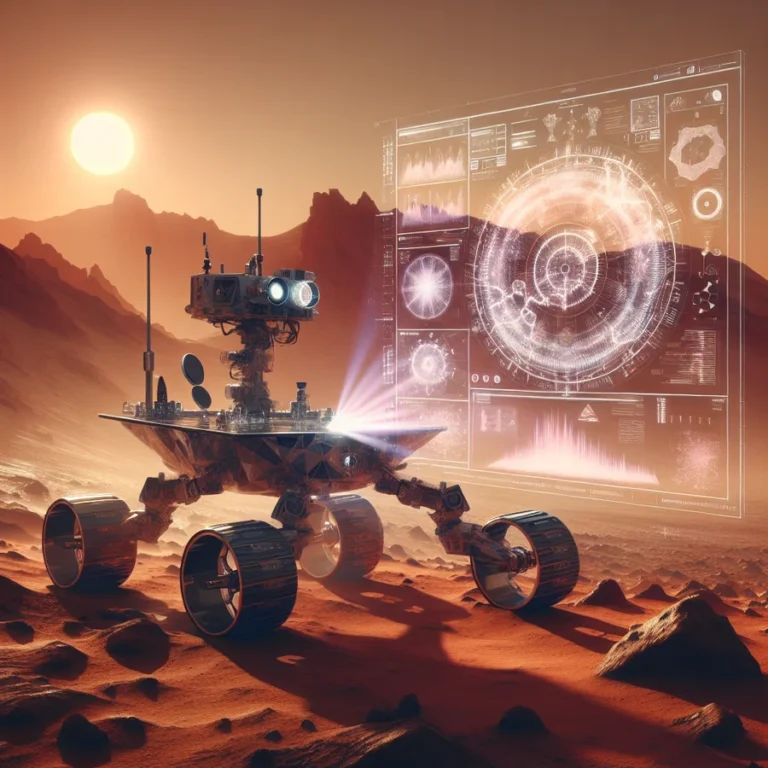AI in Entertainment: Personalizing Content and Enhancing User Experience
Imagine a world where your favorite entertainment platforms know exactly what you want to watch, listen to, or play before you even realize it yourself. That’s the promise of AI in entertainment. Artificial intelligence is revolutionizing how we consume media, making experiences more personalized, engaging, and enjoyable.
This guide explores how AI in entertainment is transforming the user experience. We will cover everything from personalized recommendations to enhanced content creation and beyond. Get ready to discover how AI is shaping the future of entertainment.
The Impact of AI in Entertainment
AI in entertainment is no longer a futuristic concept. It’s a present-day reality that’s reshaping the industry. From streaming services to gaming, AI algorithms are working behind the scenes to understand our preferences and deliver tailored experiences.
Here’s a glimpse of the impact:
- Personalized Recommendations: AI analyzes viewing habits, ratings, and search history to suggest content you’ll love.
- Enhanced Content Creation: AI tools assist in scriptwriting, music composition, and video editing, making content creation more efficient.
- Improved User Engagement: AI-powered chatbots and virtual assistants provide instant customer support and personalized interactions.
Personalized Content: The Core of AI in Entertainment
One of the most significant ways AI is transforming entertainment is through personalized content. Forget generic recommendations. AI algorithms delve deep into your viewing history, ratings, and preferences to curate a viewing experience that feels uniquely yours.
How AI Powers Personalized Recommendations
AI recommendation engines are the unsung heroes of personalized content. They analyze vast amounts of data to predict what you’ll enjoy. These systems use different techniques to achieve this:
- Collaborative Filtering: This method identifies users with similar tastes and recommends content enjoyed by them. Think of it as a digital “birds of a feather” approach.
- Content-Based Filtering: This focuses on the characteristics of the content itself. If you enjoy action movies, the system will recommend other action-packed titles.
- Hybrid Approaches: Many platforms combine both collaborative and content-based filtering for even more accurate recommendations.
Reminder: Netflix estimates that its recommendation engine saves the company over $1 billion per year by reducing churn and keeping users engaged.
AI for Enhanced Content Discovery
Finding something to watch can be overwhelming with so much content available. AI is making content discovery easier and more intuitive.
- Improved Search Functions: AI understands natural language, allowing you to search for content using conversational phrases.
- Content Tagging and Categorization: AI automatically tags and categorizes content based on genre, themes, actors, and more. This makes it easier to find what you’re looking for.
Note: AI-powered search functions can understand context and user intent, delivering more relevant results than traditional keyword-based searches.
Dynamic Content Personalization with AI
Personalization goes beyond simple recommendations. AI can adapt to your preferences in real-time, creating a truly dynamic experience.
- User Behavior Analysis: AI constantly monitors your interactions with the platform, learning from what you watch, when you watch, and how long you watch.
- Adaptive Content Delivery: AI can adjust recommendations based on the time of day, your location, and even your mood.
Example: A streaming service might recommend upbeat comedies during the day and relaxing documentaries at night.
AI Enhancing the User Experience in Entertainment
AI is not just about personalized recommendations; it’s about improving the entire user experience. From customized interfaces to interactive features, AI is making entertainment platforms more user-friendly and engaging.
Personalized Content Delivery with AI
AI ensures that the content you see is not only relevant but also presented in a way that enhances your enjoyment.
- Customized User Interfaces: AI can tailor the layout, content recommendations, and visual themes to fit your individual tastes.
- Interactive Features and Engagement: AI enables interactive features like personalized notifications and real-time content suggestions.
AI-Powered User Interaction and Support
AI enhances user interactions by providing immediate and intelligent support.
- AI Chatbots and Virtual Assistants: Many streaming services use AI chatbots to answer customer inquiries and resolve technical issues.
- Voice and Language Recognition: AI-powered voice recognition allows you to control your entertainment experience with voice commands.
Optimizing the User Experience with AI
AI’s role in optimizing the user experience goes beyond personalization. It ensures that streaming services run smoothly and efficiently.
- Predictive Analytics for Content: AI uses predictive analytics to anticipate your content preferences.
- Enhanced Streaming Quality: AI helps optimize streaming quality by adjusting the resolution based on your internet speed and device capabilities.
Advanced AI Technologies Transforming Entertainment
The entertainment industry is constantly evolving, and advanced AI technologies are at the forefront of this evolution. These technologies are not only enhancing personalization and user experience but also pushing the boundaries of what’s possible in content delivery and interaction.
Natural Language Processing (NLP) and AI
Natural Language Processing (NLP) is revolutionizing how we interact with streaming services. It makes it easier to find, enjoy, and manage content through conversational and contextual understanding.
- AI Chatbots for User Support: NLP enables the creation of intelligent chatbots that can handle customer service inquiries with ease.
- Contextual Content Understanding: NLP is also used to analyze and interpret the context of the content. This leads to more accurate content recommendations and enhanced search functionality.
Computer Vision and AI
Computer vision is another groundbreaking AI technology that’s transforming how content is managed, tagged, and moderated within streaming platforms.
- Image and Video Analysis: AI-powered computer vision technologies can analyze visual content to automatically tag and categorize it.
- Automated Content Moderation: Computer vision also plays a critical role in ensuring content safety and compliance.
Predictive and Prescriptive Analytics
AI-driven predictive and prescriptive analytics are taking content recommendations and user engagement to the next level. They use data to forecast trends and inform strategic decisions.
- Viewer Behavior Predictions: Predictive analytics leverages AI to analyze historical data and forecast future viewer behavior.
- Content Strategy and Planning: Prescriptive analytics uses AI to provide actionable insights for content strategy and planning.
Real-World Examples: AI’s Impact on Streaming Platforms
To truly understand the impact of AI in entertainment, let’s look at some real-world examples. Here are three notable case studies that showcase AI’s transformative role in the streaming industry:
Netflix and AI
Netflix is a pioneer in integrating AI to enhance user experience and engagement. The platform’s sophisticated AI-driven approach has set a high bar for content recommendation and personalization.
- Recommendation Engine: Netflix’s recommendation system uses a hybrid model combining collaborative filtering and content-based filtering.
- Personalization Strategies: Beyond recommendations, Netflix uses AI to tailor the user interface for each viewer.
Spotify and AI
Spotify has revolutionized music streaming with its AI-driven features, particularly in how it curates playlists and engages listeners.
- Music Recommendation: Spotify’s Discover Weekly playlist is a standout example of AI in action.
- User Insights and Personalization: Spotify also leverages AI to enhance the user experience through features like Wrapped.
Amazon Prime Video and AI
Amazon Prime Video uses AI to refine its content recommendations and improve user satisfaction through various innovative approaches.
- AI in Content Recommendations: Amazon Prime Video’s recommendation engine is designed to suggest content based on viewing history, ratings, and even browsing patterns.
- User Experience Enhancements: Prime Video also uses AI to enhance user interaction through features like X-Ray.
Challenges and Considerations of Implementing AI in Entertainment
While AI offers numerous benefits, implementing it in the entertainment industry also presents challenges.
Data Privacy and Security
Protecting user data is paramount. Streaming services must implement robust security measures to prevent data breaches and comply with privacy regulations.
- User Data Protection: Streaming platforms gather vast amounts of personal data.
- Balancing Personalization and Privacy: Striking the right balance between personalized recommendations and user privacy can be challenging.
Algorithmic Bias and Fairness
AI algorithms can inadvertently perpetuate biases. It’s important to ensure that algorithms are designed to promote a diverse range of content and avoid reinforcing biases.
- Bias in Recommendations: AI-driven recommendation systems can sometimes reinforce existing biases.
- Addressing Discrimination: It’s important for streaming platforms to regularly audit and refine their algorithms to prevent discriminatory outcomes.
Technical Limitations and Scalability
AI algorithms require significant computational resources. Ensuring that these algorithms operate efficiently and scale effectively with growing user bases is a constant challenge.
- Algorithm Efficiency: AI algorithms require significant computational resources.
- System Integration: Integrating AI technologies into existing systems and workflows can be complex.
User Experience and Expectations
Users have come to expect highly accurate and relevant recommendations. Meeting these expectations requires continuous improvement and refinement of AI algorithms.
- Managing Expectations: Users expect highly accurate and relevant recommendations.
- Maintaining Transparency: Being transparent about how AI is used to personalize content can build trust with users.
The Future of AI in Entertainment
The future of AI in entertainment is bright. As AI technology continues to advance, we can expect even more personalized, engaging, and immersive experiences. Here are some trends to watch:
- AI-Generated Content: AI will play an increasingly important role in content creation, from scriptwriting to music composition and visual effects.
- Virtual and Augmented Reality: AI will enhance VR and AR experiences, creating more immersive and interactive entertainment.
- Personalized Advertising: AI will enable more targeted and relevant advertising, improving the user experience and increasing advertising effectiveness.
AI in entertainment is not just about technology; it’s about creating better experiences for users. By understanding user preferences, personalizing content, and optimizing the user interface, AI is transforming the way we consume media. As AI continues to evolve, the future of entertainment promises to be more engaging, immersive, and personalized than ever before.
Conclusion
In conclusion, AI in entertainment is revolutionizing the industry by personalizing content and enhancing user experiences. From AI-powered recommendations to optimized streaming quality, AI is transforming how we interact with media. While challenges like data privacy and algorithmic bias must be addressed, the potential benefits of AI in entertainment are enormous. As AI continues to evolve, it will shape the future of entertainment, making it more engaging, immersive, and personalized for everyone.
FAQs
What is AI personalization in entertainment?
AI personalization in entertainment refers to using artificial intelligence to tailor content, recommendations, and user interfaces to individual preferences. This can include suggesting movies, TV shows, music, or games based on a user’s viewing history, ratings, and other data.
How does AI enhance user experience in streaming services?
AI enhances user experience in streaming services by providing personalized content recommendations, improving search functionality, optimizing streaming quality, and offering AI-powered chatbots for customer support.
What are some examples of AI-driven content creation in entertainment?
Examples of AI-driven content creation in entertainment include AI-assisted scriptwriting, AI-generated music, and AI-powered video editing. These tools can help content creators produce high-quality content more efficiently.
What are the challenges of implementing AI in entertainment?
Some challenges of implementing AI in entertainment include data privacy and security concerns, algorithmic bias and fairness, technical limitations and scalability, and managing user expectations.
How is AI used in gaming?
AI is used in gaming for various purposes, including creating realistic non-player characters (NPCs), generating procedural content, automating game testing, and personalizing player experiences.
What is the future of AI in the entertainment industry?
The future of AI in the entertainment industry includes increased use of AI-generated content, enhanced virtual and augmented reality experiences, more personalized advertising, and AI-driven predictive analytics for content strategy and planning.






